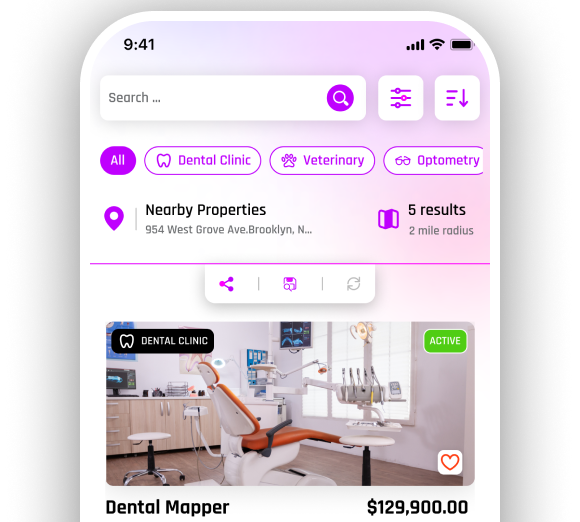How Does Inflation Affect a Dental Practice Valuation? A Complete Seller’s Guide

As the cost of living rises and interest rates fluctuate, inflation becomes a major factor influencing business valuations—including dental practices. For owners preparing to transition, understanding the effects of inflation is essential to pricing your practice competitively and negotiating favorable terms.
While many sellers focus on production numbers and patient retention, broader economic trends like inflation can significantly shape how buyers evaluate risk, value, and return on investment. Whether you're listing your dental practice for sale today or planning for a sale in the near future, this blog explores how inflation plays into the bigger picture—and what you can do to protect your valuation.
What Is Inflation and Why Does It Matter?
In simple terms, inflation is the rate at which the general level of prices for goods and services rises, reducing purchasing power over time. For dental practices, inflation impacts everything from operational costs to the value of future income streams.
Here’s how inflation affects valuations specifically:
-
Increases the cost of dental supplies, materials, and labor
-
Raises interest rates, which may reduce buyer affordability
-
Decreases the present value of future cash flows
-
Impacts staff retention due to wage pressures
-
Alters buyer risk appetite and borrowing capacity
5 Ways Inflation Changes the Game for Dental Practice Valuation
Inflation doesn’t just raise prices at the pump — it ripples through every layer of a dental practice’s operations. Check out how it can dramatically influence how your practice is valued in today’s market.
1. Operating Expenses Rise, Shrinking Margins
Inflation drives up the cost of everything—from dental consumables to staff salaries and rent. As your operating costs increase, your net profit may shrink, directly impacting your EBITDA (Earnings Before Interest, Taxes, Depreciation, and Amortization)—a key metric used to determine value.
Even if your collections remain strong, a rise in expenses means buyers might see lower earnings potential, which can lower the offer they’re willing to make.
Example: A practice collecting $1M annually with a 20% profit margin is far more attractive than one with the same collections and a 10% margin due to rising costs.
Buyers are increasingly cautious about assuming high-overhead practices during inflationary periods.
2. Higher Interest Rates Impact Buyer Financing
When inflation rises, the Federal Reserve typically increases interest rates to stabilize the economy. This creates a ripple effect in the dental M&A market, especially for private buyers relying on practice loans.
With higher borrowing costs:
-
Monthly loan payments increase
-
Buyers’ total loan eligibility may decrease
-
Deal terms become more conservative
-
Closing timelines may be extended
As a seller, you might see fewer individual buyers or receive more creative deal structures, such as earn-outs or partial seller financing. Listing your private practice for sale during high inflation means preparing for greater buyer scrutiny.
3. Adjusting for Depreciation and Equipment Costs
Inflation can make capital improvements more expensive. Suppose you've recently invested in new dental equipment for sale or upgraded your operatories. In that case, those assets may cost more than they did just a few years ago, but they could also add to your valuation if documented correctly.
However, older equipment may depreciate more rapidly in an inflationary environment because:
-
Buyers compare cost vs. replacement value
-
Technological obsolescence accelerates
-
Supply chain issues drive up the cost of replacements
This makes it even more crucial to maintain accurate equipment appraisals and be transparent about recent upgrades and warranties.
4. Patient Behavior and Revenue Volatility
During inflationary periods, patients may become more cost-conscious, leading to delayed or canceled elective treatments like cosmetic procedures, whitening, or even routine cleanings. This change in consumer behavior can create short-term dips in revenue that may affect how buyers evaluate your practice’s cash flow stability.
Revenue volatility is a red flag for some buyers, especially when:
-
There's heavy reliance on elective procedures
-
No-shows and cancellations increase
-
Patients defer treatment due to rising living costs
To offset this, focus on boosting case acceptance rates and offering flexible financing options. Practices that show resilience in patient retention and steady revenue, even during inflation, are seen as lower risk and more valuable.
Including this consideration helps buyers get a complete picture of the real-world financial performance of the dental practice to buy, especially during economically unstable periods.
5. Real Estate Considerations: Practice + Property
If your practice includes ownership of a building or long-term lease, inflation plays a significant role in your overall valuation. A practice tied to valuable medical commercial real estate may be more attractive to DSOs or corporate buyers looking for long-term stability.
However, inflation can also drive up:
-
Property taxes
-
Building maintenance costs
-
Lease renewal rates
All of these affect buyer cash flow projections and their valuation model. If you’re selling both your practice and your property (or leasing it to the buyer), be prepared to explain these cost dynamics and how you've managed them.
5 Strategic Tips for Sellers To Inflation-Proof Your Practice Valuation
To maximize value despite inflationary pressures, consider these practical steps:
Maintain Strong Financial Records
Clean, consistent books are key to demonstrating profitability even as expenses rise. Use CPA-reviewed P&Ls and track KPIs like hygiene production, staff costs, and new patient flow.
Increase Operational Efficiency
Offset inflation by reducing waste, optimizing staff schedules, and negotiating better supplier rates.
Invest in Technology
Modern software and clinical tools not only improve efficiency but also increase appeal to buyers seeking a turnkey operation.
Review Fee Schedules Annually
Make sure your fees reflect current market rates—don’t let inflation eat into profits by undercharging.
Partner with Experts
Work with a dental CPA, transition consultant, and legal advisor who understands healthcare mergers and acquisitions. They’ll help position your practice competitively in today’s economy.
Inflation Is Inevitable—A Poor Valuation Doesn’t Have to Be
Inflation may be beyond your control, but how you prepare for it isn’t. You can still command strong offers- even in a shifting economy- by staying informed, managing your margins, and highlighting the value of your assets and patient base.
Dental practices remain resilient investments. With strategic planning and the right team, your practice can attract quality buyers who see past inflation and into long-term potential.
Looking to sell your dental practice in today’s market?
Let the PracticeFinder App help you navigate the changing landscape of practice sales.
Browse qualified buyers, get expert valuation guidance, and list your practice with confidence—100% tailored to dental professionals.
Ready to find the right buyer and get the best value for your dental practice? Visit the PracticeFinder App today.

